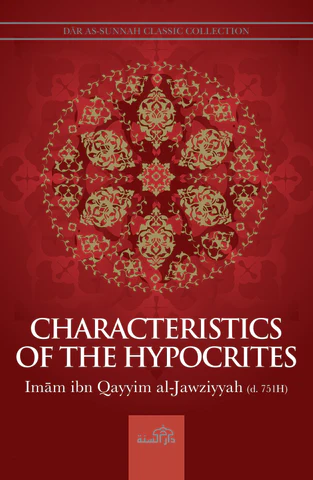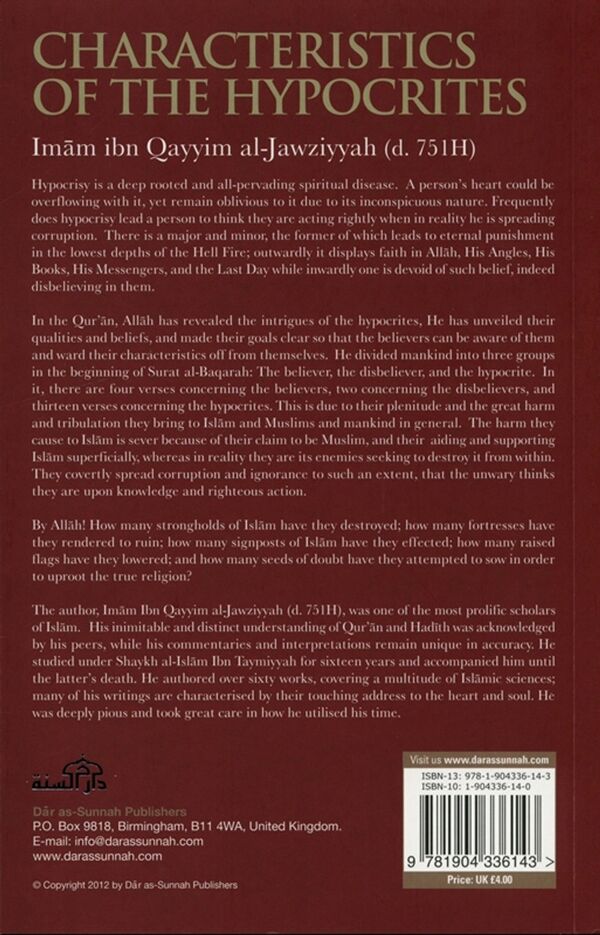Cart is empty
Please sign in so that we can notify you about a reply
Description
"Hypocrisy is a deep rooted and all-pervading spiritual disease. A person's heart could be overflowing with it, yet remain oblivious to it due to its inconspicuous nature. Frequently does hypocrisy lead a person to think they are acting rightly when in reality he is spreading corruption. There is a major and minor, the former of which leads to eternal punishment in the lowest depths of the Hell Fire; outwardly it displays faith in Allah, His Angles, His Books, His Messengers, and the Last Day while inwardly one is devoid of such belief, indeed disbelieving in them.In the Quran, Allah has revealed the intrigues of the hypocrites, He has unveiled their qualities and beliefs, and made their goals clear so that the believers can be aware of them and ward their characteristics off from themselves. He divided mankind into three groups in the beginning of Surat al-Bagarah: The believer, the disbeliever, and the hypocrite. In it, there are four verses concerning the believers, two concerning the disbelievers, and thirteen verses concerning the hypocrites. This is due to their plenitude and the great harm and tribulation they bring to Islam and Muslims and mankind in general. The harm they cause to Islam is sever because of their claim to be Muslim, and their aiding and supporting Islam superficially, whereas in reality they are its enemies secking to destroy it from within.
They covertly spread corruption and ignorance to such an extent, that the unwary thinks they are upon knowledge and righteous action.
By Allah! How many strongholds of Islam have they destroved; how many fortresses have they rendered to ruin; how many signposts of Islam have they effected; how many raised flags have they lowered; and how many seeds of doubt have they attempted to sow in order to uproot the true religion?
The author, Imam In Qayim al Jawziyyah (d. 751H), was one of the most prolific scholars ofIslam. His inimitable and distinet understanding of Qur'än and Hadith was acknowledged by his peers, while his commentaries and interpretations remain unique in accuracy. He studied under Shaykh al-Islam In Thymiyyah for sixteen years and accompanied him until the latter's death. He authored over sixty works, covering a multitude of Islamic sciences; many of his writings are characterised by their touching address to the heart and soul. He was deeply pious and took great care in how he utilised his time."
Reviews
No reviews found









